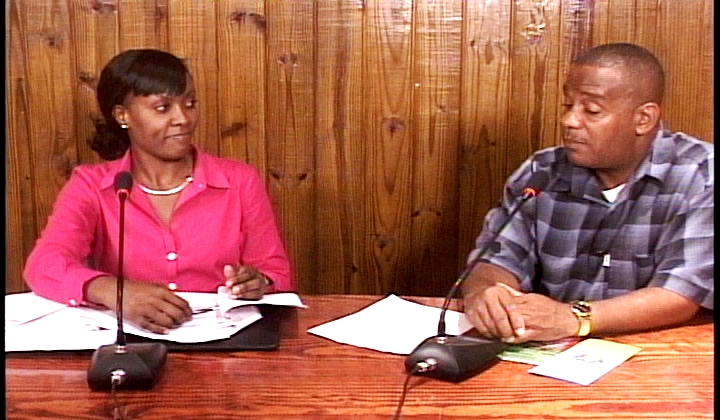No VAT to be charged on Locally Produced Foods

CHARLESTOWN NEVIS (August 27, 2010) — Farmers and fishermen on Nevis can rest assured that they will not be charged Value Added Tax [VAT] on locally produced provisions, seafood nor inputs such as herbicides and seedlings.
“It gives farmers an opportunity to produce more and have competitive prices and increase the production for all of us to consume locally grown foods.” This is according to Deputy Team Leader for the Tax Reform Unit, Ms. Kimone Moving in a recent “Eye On Agriculture” issue with Communications Officer at the Department of Agriculture, Mr. Eric Evelyn.
Ms. Moving said that while agricultural inputs such as animal feed, fibre glass, boats, anchors, Global Positioning System [GPS], and Very High Frequency [VHF] radios were exempted from additional VAT charges, persons and businesses will be charged VAT on imported products.
“Any other agricultural products that are imported into the federation will attract a VAT. So if a supermarket is importing from Miami, the consumption tax they would have paid would have been 22.5 percent and that will be replaced with a VAT rate of 17 percent,” she said.
The new VAT regime is expected to replace the consumption taxes paid at the ports of entry and the Inland Revenue Department; the trader’s, Cable TV, public entertainment, parcel, gaming machine and lotteries, hotel and restaurant and the island enhancement taxes except for the passenger enhancement fee; export duty and the telecommunications and vehicle rental levies.
VAT, defined as “a simple and more efficient tax” by Moving is expected to decrease the cost of importation and increase the standard of living on the island.
“It is really a modern system as we shift from an economy that was based on taxing goods only, to now services so it’s broad-based and it’s a simpler tax for the government to administer and as a result of the VAT, we can expect better healthcare and better roads. We all want all of these things and so the Value Added Tax will help to provide these continuously,” Moving said.
Following consultations between members of the Tax Reform Unit and residents of St. Kitts and Nevis, several items and services were zero rated and or exempted from being charged the additional tax. These items include bread; rice; flour; sugar; fuel; milk; infant formula; infant and adult disposable diapers; repaired items both for import and export; insurance; education and medical services; local agriculture produce; electricity; residential rent; interest on loans; water in homes; bus/taxi fees; medicines for chronic diseases and basic construction services to a residential home.
Persons seeking information on the Value Added Tax after its November 1st start date are encouraged to visit the Tax Reform Unit next to the Inland Revenue Department in Charlestown, log on to the website www.sknvat.com or send an email to info@sknvat.com.
